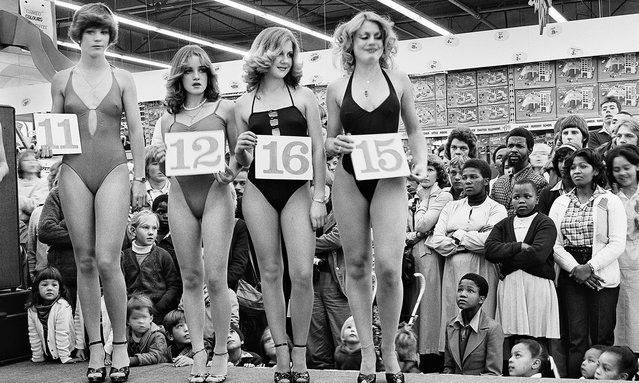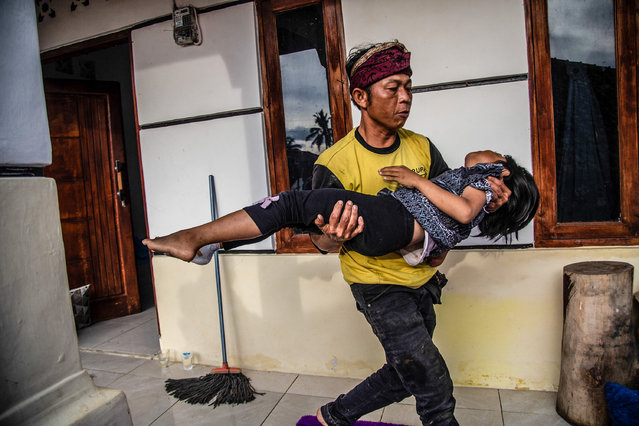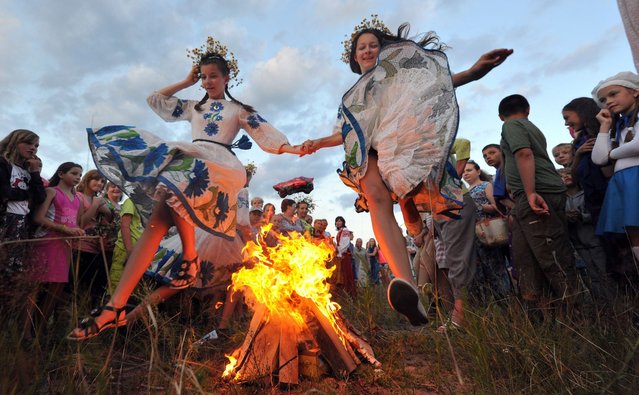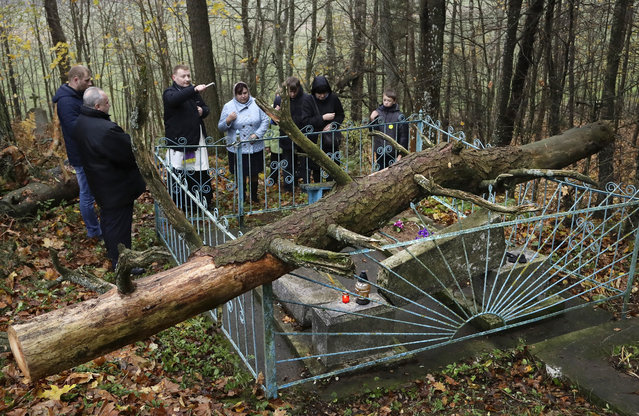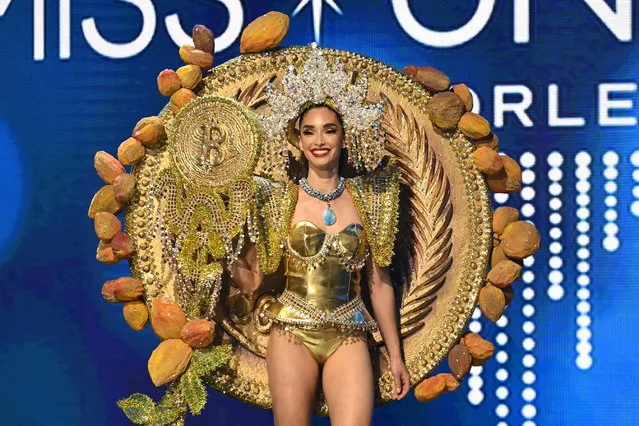
Alejandra Guajardo, Miss Universe El Salvador 2022 poses on stage in an outfit inspired by the country's use of Bitcoin, and previously the colón and cocoa beans as a currency, during the 71st Miss Universe National Costume Show at the Ernst N. Morial Convention Center in New Orleans, Louisiana, U.S. January 11, 2023. (Photo by Benjamin Askinas/©IMG Universe LLC/Handout via Reuters)
11 Mar 2024 10:02:00,post received
0 comments


